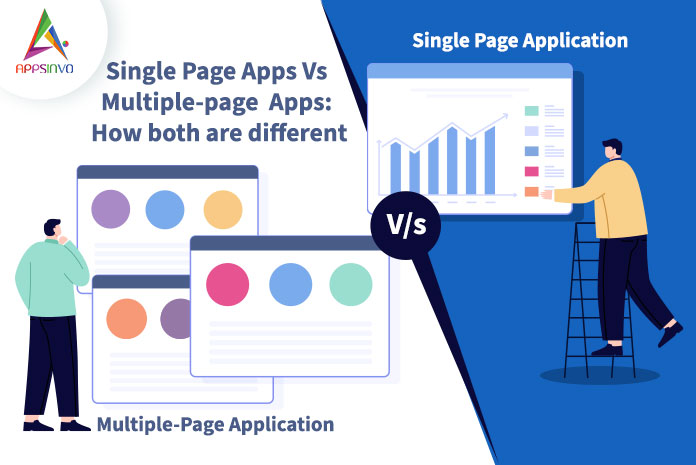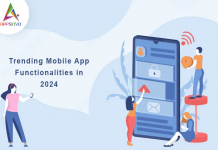Web apps are easy to code, easy to update, and not depend on any device. They are known to bring the requisite features to your mobile app and additionally they are replacing the browser-based web apps with the slow increase in demands for the enabled apps.
There are three major patterns of web apps – 1. Progressive web apps 2. Single page apps and 3. Multiple page apps. With every app type single page and multiple-page apps come with their set of cons and pros and about this, we are going to discuss in today’s article.
How to know if a Mobile app is a Single-page app?
A single-page app fits into a single web page with having dynamic actions without refreshing or reload the page. This quality improves performance by improving page load time using AJAX to navigate across webpages etc. the best examples of single-page apps are Google Maps, Facebook, Gmail, NetFlix, Pinterest, Paypal and etc.
Is Single page apps similar to progressive web apps?
A single-page app is almost identical to progressive web apps but the reverse is not always the case.
Difference between the Single Page Apps & Multiple Page Apps
| Difference Points | Single-Page Apps |
Multiple-page apps |
| What is it | Single-page apps is a website app design method where the content of every new page is served without loading the page. It allows dynamic rewriting of the web page with new data from the webserver instead of the default way of loading new pages from the browser | Multiple page apps are like regular web apps where the entire webpage reloads every time when we switch between the modules. It can also be identified with the change in the URL. Each time when there is data exchange back and forth. These web pages allow us to create new content and place it on the page. There is no limitation for adding information about the products and services. |
| Advantages |
|
|
| Disadvantages |
|
|
| Use Cases | Networking and social media apps | Ecommerce apps, business apps, etc. |
| Frameworks | It is gradual to download because of heavy client frameworks. | The development pages are quite complicated without the use of frameworks. |
| Functionality | Forward and backward buttons become disable. | All buttons are enabled. |
| Security | These are less secure | These are more secure than SPAs. |
| Size | Smaller | Larger then SPA’s |
Conclusion
If you want to develop a platform where you want to deliver a dynamic item with little information, a single-page app is an ideal choice for it. It is not easy to confirm say that this app is suitable for you because every business and web app has its own requirements that need to be fulfilled. Therefore it all depends on your project which type of web apps suits you. At the point when all your concern is SEO, remember all the pros and cons of the above-mentioned web apps, it will help you to take the right and suitable decision. We hope you find this article informative and help you in any way.
Till then, stay safe, stay at home, wash your hands, and be happy
For more updates, stay connected and keep reading
Toddles!!














